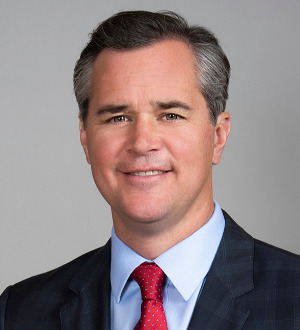Jack and Jill decide they want to have children. A fertility specialist harvests a dozen eggs from Jill and mixes them with Jack’s sperm, creating 10 pre-embryos (Other sources have shortened the term “pre-embryo” to the more colloquial “embryo.” In this article, we followed the lead of the Colorado Supreme Court in distinguishing the two. A “pre-embryo” is yet to be implanted into a uterus).
The couple transfers four of the pre-embryos into Jill’s uterus, resulting in one implantation and one successful pregnancy. Jack and Jill have their first child! After this child is born, Jack and Jill realize they were not right for one another, and Jill files for divorce. The only problem: Who gets the remaining six pre-embryos? And many subsequent problems arise from this question. For instance, if Jack brings the pre-embryos to life via surrogate, can Jill object? If Jill implants them in her uterus, can Jack object? Could a court order either of them to pay child support for a child he or she did not agree to have after the divorce? Can the embryos be destroyed over one person’s objection? Can they be donated to an infertile couple if one person objects? The answer to those questions depends on where the parties live.
Given the emotionally-laden (and politically-laden) nature of this issue, courts are producing orders that vary widely by state and jurisdiction. Just last year, the state of Arizona passed a law ordering that Arizona judges must award the pre-embryos to the spouse that will provide “the best chance for the in vitro human pre-embryos to develop to birth.” Loosely translated: If your ex wants to implant pre-embryos into a uterus and bring them to term, over your objection, he or she will be given the right to do so in Arizona. Your ex-wife could have additional children over your objection. Your ex-husband could implant them into his new wife’s uterus to create children over your objection. Pre-embryos could be donated to an infertile couple so that they could create children over your objection. In Arizona, these scenarios are possible (likely) even if you signed a contract saying pre-embryos would be destroyed in the event of a divorce.
By contrast, many other states have taken more of a “veto rules” type of approach. Under this method, if either spouse opposes implantation of pre-embryos, the pre-embryos shall not be implanted. Cases in other states have awarded pre-embryos to women who wanted more children and had no other means by which to do so. In yet other states, courts have focused primarily on the parties’ own agreements.
Overall, the question of who gets the pre-embryos in a divorce is yet another example of science outpacing law. No Federal case precedent or statute presently preempts states from independently legislating on the issue of pre-embryos after divorce. What happens in such cases depends entirely on where you live and the most recent legal precedents established there. Here in Colorado, there is no statute governing the issue (although that could always happen). Instead, we turn to the most recent cases on the issue.
Last year, the Colorado Supreme Court took on the issue of “who gets the pre-embryos in the divorce” in In re Marriage of Rooks. In that case, the mother and father participated in IVF treatments and created three children. When the parties filed for divorce, the couple had six pre-embryos remaining. At the time of the parties’ divorce, the mother wanted to use the remaining pre-embryos to create more children. The father wanted to discard them.
Ultimately, the court adopted the “balancing of interests” approach, holding that both spouses have equally valid, constitutionally-based interests in procreational autonomy, meaning that neither spouse shall have precedence over the other regarding the decision of what to do with the pre-embryos. The court recognized that the disposition of pre-embryos required a trial court to balance one parent’s “inherent privacy right not to conceive children” against another parent’s “right to become a parent.”
The Colorado Supreme Court instructed lower courts to first look at any existing agreements between the parties that establish the disposition of the remaining pre-embryos. The Colorado Supreme Court then elaborated on several factors that courts should weigh in making the disposition decision if no contractual agreements exist. These factors include: the intended use of the party seeking to preserve the disputed pre-embryos; demonstrated physical ability, or inability of party seeking to implant disputed pre-embryos to have biological children through other means; parties’ original reasons for perusing in vitro fertilization; hardship for person seeking to avoid becoming a genetic parent, including emotional, financial, or logistical considerations; either spouse’s demonstrated bad faith or attempt to use pre-embryos as unfair leverage in divorce proceedings, and; other factors may be relevant on a case-by-case basis.
In May, the Colorado Court of Appeals ruled on In re Marriage of Olson, where the court discussed the ruling in Rooks. In Olson the facts were parallel to Rooks, except that the wife wished to donate the pre-embryos rather than using them to have another child herself. The Olson court concluded that the wife’s subjective belief that the pre-embryos should be protected as human life should not be weighed more heavily than husband’s constitutional interest in not procreating with the pre-embryos, and remanded for further analysis by the district court.
What does this mean for Colorado families? It means that if couples here want to be able to preserve their autonomy and make their own choices regarding their pre-embryos, the court system will generally respect the clear contractual agreements they reach. As such, the most important piece of information to couples considering IVF is this: It is a very good idea to have these discussions and to put all of your agreements regarding pre-embryos into a legal contract.
Ideally, couples will have a conversation as a part of the in vitro fertilization process to determine what their plans are with respect to any pre-embryos that remain after they have completed growing their family or in the event of legal separation or dissolution of their marriage.
While legal contracts may not necessarily be a guarantee of the outcome in a divorce case, under the current Colorado law, it is the first thing to which a divorce court can be expected to look.
— Heather Broxterman is a partner and Madeleine Sheahan an associate at Denver family law firm Broxterman Alicks McFarlane. Contact them at 303.331.6432 or at hsb@bamfamlaw.com or mrs@bamfamlaw.com


























